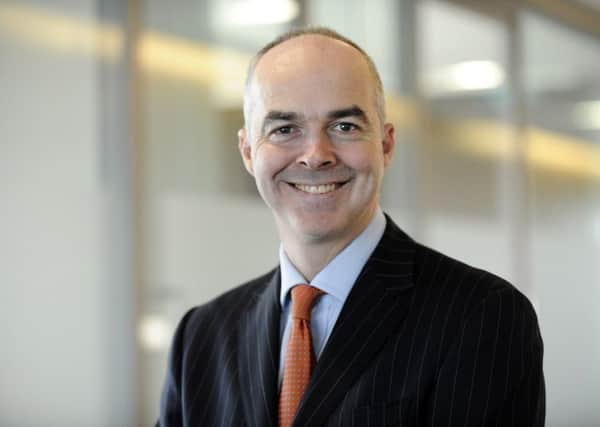Jonathan Bond: It’s time to stop working excessive hours and simply switch off


What was unappreciated at the time was that having a BlackBerry fundamentally changed the individual’s relationship with the working world – and no-one gives you training for the psychological impact of being permanently switched on.
Society may have moved on, but the little red flashing BlackBerry light became a symbol of how technology has transformed working life.
Advertisement
Hide AdAdvertisement
Hide AdAs time has passed, the lines between urgent and important have become blurred, and the habit of compulsively checking emails deeply entrenched.
As technology has improved it has become harder to keep professional and private lives separate. Excessive working and burnout among lawyers is increasingly commonplace, and some are asking: is it time to unplug?
A senior colleague of mine once spent weeks working late every night to show support for his team who were still in the office. One day, a staff member said: “It doesn’t matter how late we work, you’re always here later.” This manager’s well-intentioned act of support was actually exacerbating the problem, putting further pressure on his team to work into the night. By realising the effect and leaving at a sensible time, he set an example and the team soon followed suit, to great effect.
This hyper-competitive culture has become a defining attribute of the legal profession and in other sectors as professionals jostle to show who can work the hardest.
But unsustainable working practices are bad for productivity, bad for physical health, bad for client relationships and bad for gender diversity. It has become a truism that the culture of focusing on hours inputted rather than outcomes achieved has discouraged female talent from aiming for the next level in their careers, or even staying in the profession.
Further, there is also evidence to indicate that avoidable working practices are bad for mental health. According to the City Mental Health Alliance (CMHA), a survey of law graduates revealed that 73 per cent of respondents had experienced a severe or rare mental health problem. Researchers have also established that people attracted to the field of law are even more likely to develop mental health issues than medical students.
And yet, research conducted by Pinsent Masons into client attitudes found that few senior lawyers want an ‘always on’ commitment. As one client pointed out, “we don’t want busy fools”. Clients instead want people who are fresh, dynamic and energised.
True progress will require collaboration between both the buy and supply side. In the last two years a number of financial institutions and law firms, including Pinsent Masons, have partnered to develop the “Mindful Business Charter”. This is a set of agreed, common-sense rules about respecting rest periods, and being clear in instructions about what needs to be done, who needs to do it, and when it is required.
Advertisement
Hide AdAdvertisement
Hide AdIn the Mindful Business Charter, legal professionals on both sides of the fence are asked to ‘build in’ healthy habits. Charter signatories have agreed that no one should send instructions to lawyers late on a Friday afternoon – unless it’s urgent, in which case it should be made clear exactly how urgent. The implicit assumption that work needs to be done immediately has been removed; such requests instead need to be explicit.
Senior staff are encouraged to lead by example, for instance not replying to emails at late at night. Longer vacations are promoted and ‘offline means offline’ has become the mantra.
Philip Aiken, Managing Director of Barclays, said “The take-up of the Charter from so many of our banking and legal counterparts shows the power of collaboration to foster change. I believe it shouldn’t stop there. We hope that in time these principles will be applied in all organisations across all sectors.”
Attitudes to work are changing and as they do, it’s important that we learn to be more mindful with our use of technology, and strive to improve wellbeing among our bright minds which are dealing with complex client issues. Those minds need to be trained, stretched and rested, just like the bodies and minds of elite athletes. If the profession is brave enough to acknowledge there is a problem, collaboration and community will be key to resolving it.
Jonathan Bond is Director of HR & Learning, Pinsent Masons